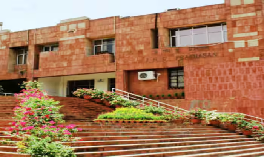Jawaharlal Nehru University (JNU) has recorded 151 sexual harassment complaints since 2017, the year its Internal Complaints Committee (ICC) replaced Gender Sensitisation Committee Against Harassment (GSCASH), according to data obtained through an RTI application.
The university claims to have resolved nearly 98 per cent of these complaints, with only three cases currently under investigation.
However, when asked about the nature of the complaints and the action taken against the accused, JNU refused to provide information, citing confidentiality.
The decision to dismantle GSCASH in 2017 has been a contentious issue, with the JNU Students’ Union and Teachers’ Association consistently demanding its reinstatement.
The association argue that the ICC lacks the transparency and autonomy that GSCASH provided and operates under administrative influence, undermining trust in its processes.
The data shows that the highest number of cases in a single year was reported in 2018-19, with 63 complaints. Before the ICC’s formation, JNU had received 38 record cases in 2016.
The COVID-19 pandemic years saw a significant drop, with only six complaints registered between 2019 and 2021, likely due to reduced campus activity.
However, the numbers surged in recent years, with 30 complaints each in 2022-23 and 2023-24.
Seventeen cases were registered in 2017-18, 63 in 2018-19, five in 2019-20, one in 2020-21 and five in 2021-22, the data showed.
In 2015, the Delhi Commission for Women (DCW) noted that JNU had the highest number of sexual harassment complaints among the city’s educational institutions with 51 cases reported in a span of three years between 2013 and 2015. It amounted to approximately 50 per cent of such complaints among Delhi’s educational institutions during that period.
Recently, several cases have brought JNU under intense scrutiny.
In April, a second year female student staged an indefinite strike for 12 consecutive days on campus blocking the main entrance point of the varsity after alleged ‘inaction’ over her ‘sexual harassment’ complaint to the university officials. The survivor and the supporters were later penalised by the varsity for staging the protest.
In October, as many as 47 female students filed a joint complaint with the ICC regarding alleged sexual harassment and violence that occurred during a freshers’ party on campus.
Similarly, in April, JNUSU claimed a female student of Centre for Chinese and South-East Asian Studies at the varsity was sexually harassed by her professor and inaction by the varsity administration over her complaint forced her to leave the campus.
The incidents have led to widespread protests and raised questions about the handling of complaints by the ICC.



